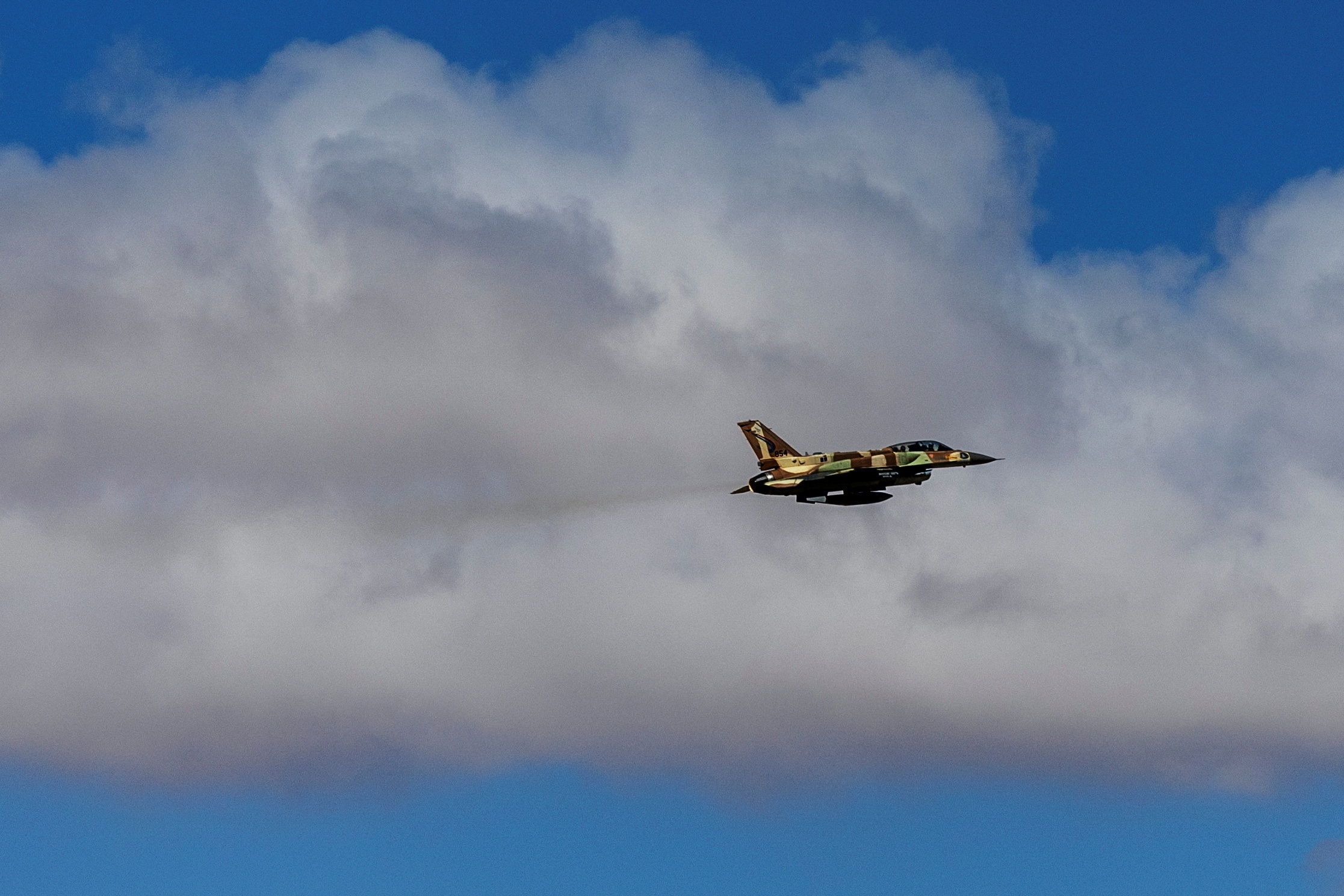Israeli airstrikes near the northern Syrian city of Aleppo early Friday killed and wounded scores of people, according to Syria’s Defense Ministry, in one of the deadliest attacks in recent years as an undeclared conflict between Israel and Iran rages alongside the conflict in Gaza.
Several sites southeast of Aleppo were hit, Syrian state-run news agency SANA reported, citing a Syrian military official. At least 33 Syrians were killed in the attack that targeted sites including a weapons depot and factory used by Lebanon’s Hezbollah, according to two Syrian government advisers.
The militant group, which fought on the side of the Syrian government in the country’s decadelong civil war, said five of its members were killed in the strike. It said it responded by launching missiles at a division headquarters of the Israeli military’s northern command.
The Israeli military declined to comment on the strikes inside Syria. It usually doesn’t confirm or deny individual strikes there, but has said in the past that they are aimed at stopping Iranian weapons deliveries to Hezbollah.
Longstanding tensions between Israel and Iran have deepened since the Oct. 7 attacks led by Hamas, which is backed by Tehran. Israel has also been squaring off in near-daily skirmishes with Hezbollah that threaten to create another front in Israel’s north.
Israel has for years hit Iran-backed targets in Syria, but the tempo of the strikes has increased since Hamas’s incursion into southern Israel—which Israeli authorities say killed 1,200 people, mainly civilians. Israel’s ensuing invasion of Gaza has killed more than 32,000 people, mainly women and children, according to Palestinian health officials, whose figures don’t distinguish between fighters and civilians.
Iran has been working to deliver weapons to Hezbollah in Syria via sea, land and air since the start of the war in Gaza, according to Ronen Solomon, an Israeli military analyst who tracks these flows for a blog called the Intelli Times.
Fearful of potential full-blown conflict with Hezbollah on its northern border, Israel has been conducting strikes in Syria to disrupt the transfer of arms, including missiles and drones, he said.
“Israel is believing that it is maybe going to war,” said Solomon. So it is cutting off “all the routes from Iran to Hezbollah in Syria” for weapons, he said.
Israel and Hezbollah, meanwhile, have exchanged strikes since Oct. 7 , calibrated around unspoken red lines to avoid escalating the conflict into an all-out war. Hezbollah has fired hundreds of rockets at northern Israel, largely at military targets and mostly intercepted by the country’s defense systems. Hezbollah has also targeted residential areas.
In recent weeks, though, Israel has hit targets deep inside Lebanese territory, well beyond the border region that is usually at the center of the conflict between the two sides. The bombardments across the south of the country have exacted the heaviest toll on Hezbollah in a single conflict since 2006, with the militia saying that more than 240 of its fighters have been killed.
On Wednesday, Israeli airstrikes in southern Lebanon killed 16 people and Hezbollah rockets killed one Israeli civilian, making it the deadliest day along the border since Oct. 7. On Friday morning, Hezbollah said it had launched missiles at an Israeli army barracks in the Israeli-occupied Shebaa Farms area, while an Israeli warplane struck and killed a Hezbollah commander in the southern Lebanese area of Bazouriye.
Israeli military spokesman Rear Adm. Daniel Hagari said Thursday night that Israeli jets had struck Hezbollah targets in Lebanon over the previous 48 hours and killed 30 of the group’s fighters over the past week.
Israeli Prime Minister Benjamin Netanyahu ’s government faces political pressure to confront Hezbollah, which is a more powerful force than Hamas, and whose presence on the border has forced 100,000 citizens in northern Israel to evacuate their homes.
Hezbollah chief Hassan Nasrallah is expected to make public remarks Friday evening in a speech that was scheduled before this week’s attacks.
The Lebanese group has sought to contain its response to Israeli attacks and maintain a simmering war of attrition. An all-out war with Israel would likely be devastating for both sides, and could draw in regional and global powers, including Iran and potentially the U.S.
“Restoring calm along that border remains a top priority for President Biden and for the administration,” White House National Security Council spokesman John Kirby said Thursday. “We’ve also been very, very clear: We do not support a war in Lebanon.”
Write to Stephen Kalin at stephen.kalin@wsj.com and Benoit Faucon at benoit.faucon@wsj.com



